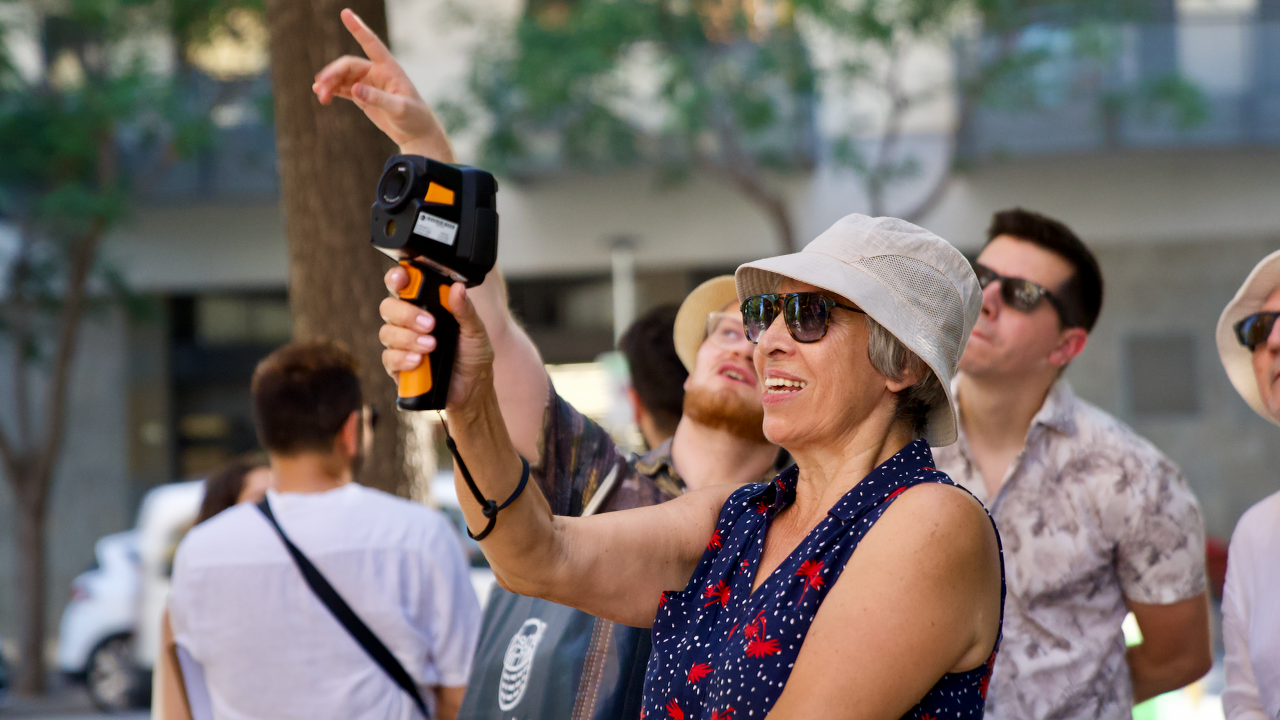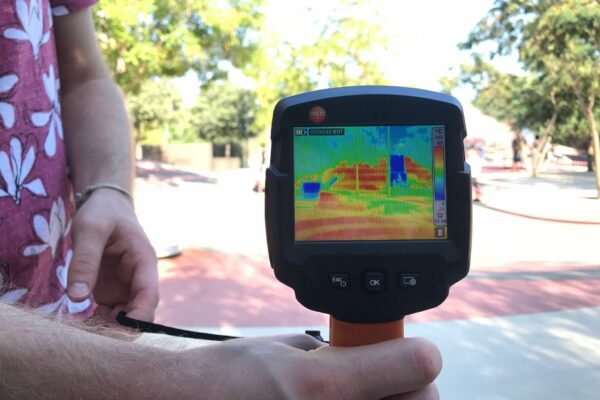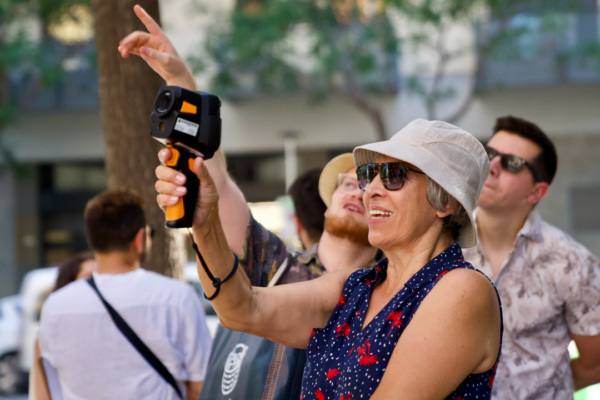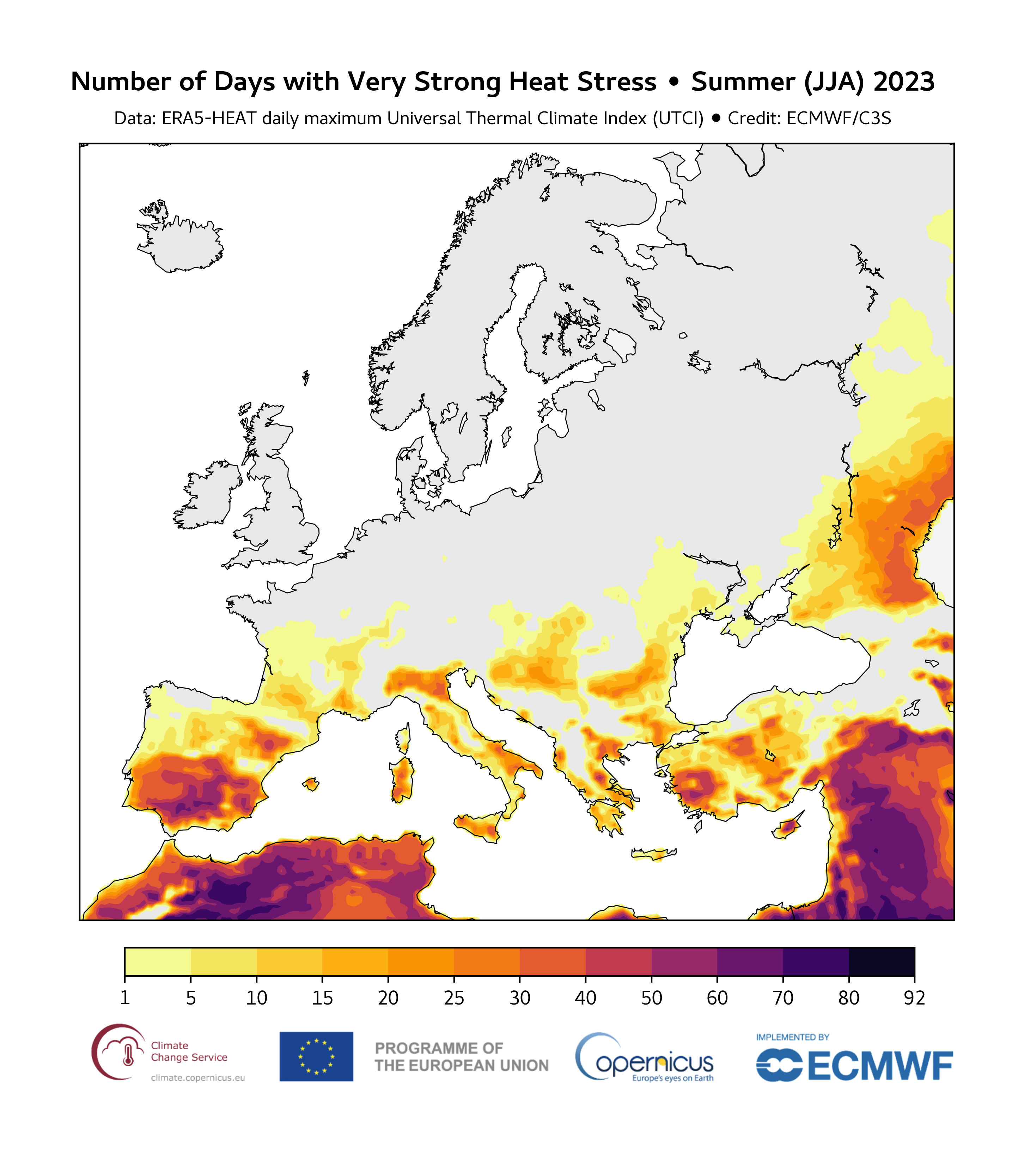Project Description:
Barcelona’s urban heat island effect exacerbates the intensity of heat waves, which are increasing due to global warming, and makes the city less livable, becoming a major health problem. The CALOR project aims to investigate the causes of the urban heat island effect through the principle of citizen science, empowering citizens to become agents of change by raising awareness through different tangible methods and different levels of analysis.
Project Type: Kickstarting
Theme: Cities For Life, Climate
Mentor: Alexandra Albert
Using citizen science to better understand the impacts and solutions to the heat island effect in Barcelona
The CALOR project represents a collaborative investigation led by the aquí team, to understand the factors contributing to Barcelona’s overheating problem during the summer months, which can lead to health issues, forest fires, and droughts.
Through this initiative, the CALOR project identified issues which contribute to this heat island effect and emphasised concrete changes that could be implemented at various levels that would enhance resilience.

Through this, the CALOR project established tangible connections between citizens and urban stakeholders, including experts, professionals, and policymakers, in order to better understand the issues and needs of society at all levels and to determine how to approach these problems, from multiple perspectives.
To achieve these goals, CALOR engaged a total of 80 citizen scientists through three main project phases, which included 7 workshops and 2 exhibitions. By employing a progressive and retrospective empirical methodology, they would adapt subsequent workshops based on the results and outputs received from earlier sessions.
The project kicked off with a series of 4 workshops conducted both during the day and in the evenings, amidst a heatwave in Barcelona experience in July 2023. Participants were asked to collect data through quantitative research methods, utilizing thermographic cameras, laser thermometers, and humidity sensors in public spaces, streets, buildings, and parks. In addition to this, qualitative research methods were also employed, including ethnographic observation analysing people’s behaviour.

In September, the project focused on tactical urbanism interventions, through two street exhibitions on “Parking Day” and “Car Free Day”. This allowed the CALOR team to engage with passers-by, collect their feelings and feedback about the issues surrounding a warming Barcelona, as well as present some of our findings collected during the summer months.
During the final phase of the project, in October and November, three reflection workshops were organised for citizens, city professionals, experts, and policymakers. During these workshops, the research results were presented, and a space was created for discussion, debate, and cross-pollination of ideas.
The primary goal of the CALOR project is to highlight a significant public health issue that is often underestimated, as well as to raise awareness of the problems and possible solutions, by the inclusion of a broad spectrum of participants.
For instance, through the work of the CALOR project, we were able to inform architects and city planners about construction materials to avoid, because of their tendency to convert solar radiation into heat; or to indicate under what conditions urban nature can refresh the city, thereby altering their perceptions and improving future implamentation.
Simultaneously, the project encourages citizens to reflect on their living space community and consider practical solutions that could enhance their quality of life, and ultimately build knowledge bridges between stakeholders and the communities involved.

In the preparation and realization of the project, IMPETUS provided a framework that supported the aquí-team throughout the entire process, incorporating regular supervision and incremental learning opportunities regarding critical points or execution methodologies. The international and European dimensions of IMPETUS imparted a comprehensive perspective with diverse viewpoints, aiding us in transcending the project boundaries and understanding the myriad of possibilities inherent in citizen science methodology.
The CALOR project enabled us to investigate the prevailing issue of the heat island effect in Barcelona thoroughly, establishing a foundation for our forthcoming project to leverage all discoveries and project findings, translating them into tangible actions.
Moreover, we used the inputs and feedback from all our participants to build connections extending beyond CALOR. By doing so, we have established new communication channels and platforms for dialogue to collectively nurture a critical mass known as “Massa Caliente.” This group engages in contemplating ways to take action, from a grassroots and democratic perspective. The critical mass is steadily growing, encompassing all individuals who share an interest in the initiative.







